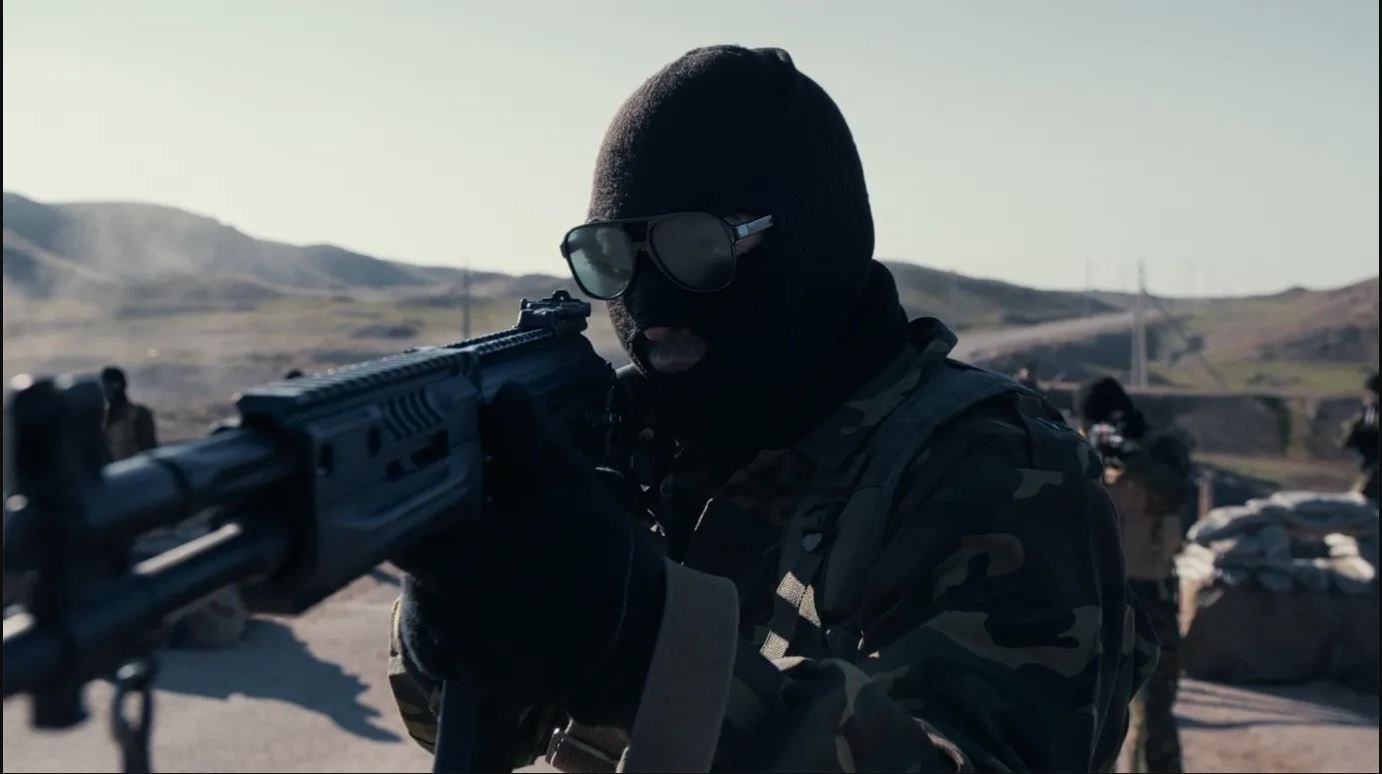‘Steppenwolf’ Review: Adilkhan Yerzhanov’s Nihilist Misfire [Fantasia 2024]
While Adilkhan Yerzhanov nails the center framing in Steppenwolf, his film is a completely undercooked nihilist nightmare that has nothing to say about the world and characters it presents.
As I was waiting in line to finally see Adilkhan Yerzhanov’s Steppenwolf at the Fantasia International Film Festival, which had its North American premiere while competing for the Cheval Noir award, one member of the public who had seen the film said to a friend waiting in line that it was “Mad Max set in Kazakhstan.” Say no more; I’m in. I didn’t need to hear anything else beyond that, you’ve got me at a new vision of George Miller’s Mad Max set in a completely different country than the Australian outback.
Steppenwolf's first couple of scenes posit the film in that category, presenting the vast Kazakh landscape as a total, barren wasteland where the law no longer exists and detectives are now mercenaries. This was the case for Brajyuk (Berik Aitzhanov), a former detective turned lawless psychopath on the lookout to kill a person who has crossed him deeply. Brajyuk is the type of person who kills first before asking any questions, and that’s how we meet him, with an AK-47, brutally exacting as many people as possible during a police station raid.
There, he meets Tamara (Anna Starchenko), a middle-aged woman searching for her son, Timka, who has gone missing. Tamara is so riddled by guilt and trauma that she can barely form sentences to Brajyuk, who reluctantly accepts to help her as he believes the person he’s looking for kidnapped her son. The rest of the movie is a deliberately slow but pitifully uninteresting nihilist post-apocalyptic actioner with nothing of value to say on the human condition, which seems to be the topic of interest for Yerzhanov in his 102-minute feature.
Credit where credit is due: Yerzhanov knows how to frame and capture striking images. There are plenty of jaw-dropping shots in his film that make the movie look semi-interesting, particularly when he places a character in the middle of the action while everything else in the background turns to literal and figurative shit (perhaps a callback to George Miller’s innovative center framing techniques that has guided his filmography from the first Mad Max to Furiosa: A Mad Max Saga). He frequently does this in regards to Tamara, which, in turn, exacerbates the trauma she’s keeping inside and ultimately makes us far more sympathetic towards her plight of finding Timka than Brajyuk’s desire for senseless killing.
In that regard, the action sequences are also strikingly captured and choreographed, but there’s not enough of them to sustain the feature. Whenever they do occur, it’s always in a blink-and-you’ll-miss-it fashion, which dilutes the powerful sense of catharsis Yerzhanov presents whenever a character begins to act violently. Yes, it’s blunt and shot in a way in which we get to see every single detail (such as fingers being cut through a ventilator, among other brutal scenes) to showcase how bleak this world has gotten. And yet, each violent scene, no matter how powerfully they are shot and presented, has little weight to them.
That’s probably because none of the characters are developed past the traits Yerzhanov gives them initially. Tamara is trauma-ridden, while Brajyuk is a total psychopath who only showcases brief glimpses of humanity by doing a bizarre dance from time to time. That’s how far gone he’s become. This is great and all, but Yerzhanov never gives us a compelling reason to make us sit through a languishing film in which we get to see Brajyuk constantly berate Tamara. At the same time, the woman can’t speak because of how traumatized she’s become. Rinse and repeat until the final action scene, which is visually exciting and has plenty of strong images that widen our eyes but hold zero emotional power to them.
Yerzhanov’s cardinal sin is that he never develops its characters past the introductory stage. They’re all stuck in a cyclical rut, and we’re forced to sit through two nihilist characters who never evolve or even regress in a worse state than they are now. Even with images that are worth our attention and performances that are more driven towards microphysiognomy than dialogues, Yerzhanov has difficulty translating exactly what he wants to convey with sweeping shots of a desolate landscape and characters who are rooted in a viewpoint that doesn’t say much but everything and everyone sucks (including the audience member watching it). Yes, and? Isn’t that the most important question of all movies that adopt a nihilistic viewpoint? The ‘why’ beyond the façade that the characters adopt?
I would consider myself far more attuned to nihilist cinema than most because I enjoy reflections on why the society we live in sucks and is doomed to fail. This is something Yerzhanov indeed presents in his quasi-apocalyptic Kazakhstan, but never develops it past the “everything and everyone sucks” mantra. It then begins to swerve around in circles until it’s clear the film will say nothing about this superbly rich nihilist world that’s only seemingly there for Yerzhanov to craft beautiful-looking images and scenes of ultra-violence.
Beyond that, however, Steppenwolf offers nothing of value. The two protagonists the audiences are stuck in, while competently acted, are pitifully uninteresting and never get the chance to do anything beyond one-note traits they’re placated with from the minute the movie opens. Sure, it looks great and is often violent, but is there something more beyond that? Yerzhanov doesn’t seem to think so, and, in turn, it may very well be the worst movie to premiere at Fantasia this year.



